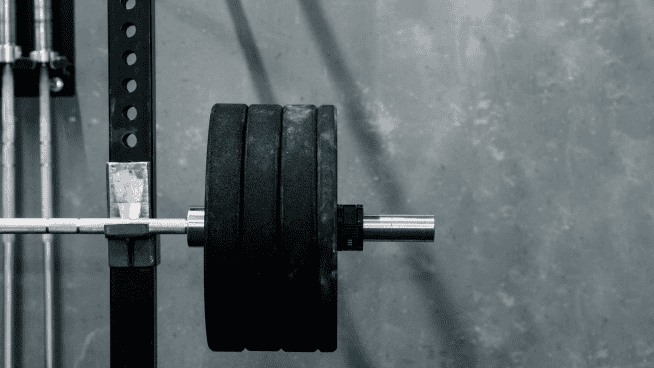Stick With Natural Protein-Rich Foods and Beverages
Want to get the most nutritional bang for your buck? If you’re a serious athlete looking to gain muscle, skip the powders and supplements, and look to protein-rich foods and beverages. By incorporating healthy, natural protein food items into your daily diet, you’ll see improvements in your strength training immediately.
The Incredible, Edible Egg
Not only does this breakfast staple rank high in quality protein (six grams per egg), its nutritional profile is boosted with minerals like bone-building vitamin D and disease-fighting antioxidants like lutein and zeaxanthin for eye health. What athlete wouldn’t perform better with stronger bones and sharper vision?
Milk-Based Products
Seeking an ideal post-workout beverage? With its perfect 4:1 ratio of glycogen-replacing carbohydrates to protein for muscle repair and growth, chocolate milk is your new best friend. Drink it immediately (within 15 minutes) after intense weight training sessions. A cup of milk has eight grams of protein, and a cup of yogurt has between eight to 12 grams. A half cup of cottage cheese has 15 grams, and most cheeses average six to 10 grams of protein per ounce.
An overlooked benefit of milk-based products is that they contain a fat-burning substance called conjugated linoleic acid, a fatty acid that will help keep you trim and build lean muscle.
Seafood
The omega-3 fatty acids found in fish like salmon, tuna, sardines and mackerel enhance cardiovascular and brain health, protect your heart during intense exercise and improve your memory. So when you need to remember the football playbook this fall, consume muscle-building and memory-boosting fish dinners! Most fillets clock in at about 22 grams of protein per three and a half ounces, and a six-ounce can of tuna has 40 grams of protein.
Nuts and Seeds
The amino acid arginine, found in protein-rich nuts and seeds, promotes the release of muscle-building nitric oxide. Almonds, walnuts, hazelnuts, pecans, sunflower seeds and pumpkin seeds are natural sources of arginine. They also contain heart-healthy mono- and polyunsaturated fats (walnuts also contain omega-3 fatty acids), plus minerals for bone development such as magnesium, phosphorus, calcium and zinc. A quarter-cup serving of most nuts and seeds contains between six and eight grams of protein.
Lean Cuts of Meat Products
Beef, chicken and pork are terrific sources of muscle-building protein, and may include vitamins C and B12, iron, magnesium, phosphorus, copper, selenium, niacin and zinc. Most cuts of beef deliver around seven grams of protein per ounce, so a six-ounce serving of steak has 42 grams. A typical four-ounce serving of chicken averages between 30 and 35 protein grams. The same amount of pork, “the other white meat,” has around 29 grams of protein, with a pork chop usually boasting 22 grams.
Plant-Based Protein Sources
Foods like soy nuts, beans, whole wheat products and whole grains are also good sources of protein, vitamins and minerals, with additional benefits for heart health. Studies have shown that a daily diet that includes these fiber-rich foods helps prevent diseases such as cancer and diabetes. One serving (a hefty half-cup) of soy nuts contain 14 protein grams, while split peas, lentils and black or pinto beans have between seven and 10 grams of protein. A slice of 100-percent whole wheat bread has about five grams, and three-and-a-half ounces of brown rice has eight grams of protein.
Photo: fotopedia.com
RECOMMENDED FOR YOU
MOST POPULAR
Stick With Natural Protein-Rich Foods and Beverages
Want to get the most nutritional bang for your buck? If you’re a serious athlete looking to gain muscle, skip the powders and supplements, and look to protein-rich foods and beverages. By incorporating healthy, natural protein food items into your daily diet, you’ll see improvements in your strength training immediately.
The Incredible, Edible Egg
Not only does this breakfast staple rank high in quality protein (six grams per egg), its nutritional profile is boosted with minerals like bone-building vitamin D and disease-fighting antioxidants like lutein and zeaxanthin for eye health. What athlete wouldn’t perform better with stronger bones and sharper vision?
Milk-Based Products
Seeking an ideal post-workout beverage? With its perfect 4:1 ratio of glycogen-replacing carbohydrates to protein for muscle repair and growth, chocolate milk is your new best friend. Drink it immediately (within 15 minutes) after intense weight training sessions. A cup of milk has eight grams of protein, and a cup of yogurt has between eight to 12 grams. A half cup of cottage cheese has 15 grams, and most cheeses average six to 10 grams of protein per ounce.
An overlooked benefit of milk-based products is that they contain a fat-burning substance called conjugated linoleic acid, a fatty acid that will help keep you trim and build lean muscle.
Seafood
The omega-3 fatty acids found in fish like salmon, tuna, sardines and mackerel enhance cardiovascular and brain health, protect your heart during intense exercise and improve your memory. So when you need to remember the football playbook this fall, consume muscle-building and memory-boosting fish dinners! Most fillets clock in at about 22 grams of protein per three and a half ounces, and a six-ounce can of tuna has 40 grams of protein.
Nuts and Seeds
The amino acid arginine, found in protein-rich nuts and seeds, promotes the release of muscle-building nitric oxide. Almonds, walnuts, hazelnuts, pecans, sunflower seeds and pumpkin seeds are natural sources of arginine. They also contain heart-healthy mono- and polyunsaturated fats (walnuts also contain omega-3 fatty acids), plus minerals for bone development such as magnesium, phosphorus, calcium and zinc. A quarter-cup serving of most nuts and seeds contains between six and eight grams of protein.
Lean Cuts of Meat Products
Beef, chicken and pork are terrific sources of muscle-building protein, and may include vitamins C and B12, iron, magnesium, phosphorus, copper, selenium, niacin and zinc. Most cuts of beef deliver around seven grams of protein per ounce, so a six-ounce serving of steak has 42 grams. A typical four-ounce serving of chicken averages between 30 and 35 protein grams. The same amount of pork, “the other white meat,” has around 29 grams of protein, with a pork chop usually boasting 22 grams.
Plant-Based Protein Sources
Foods like soy nuts, beans, whole wheat products and whole grains are also good sources of protein, vitamins and minerals, with additional benefits for heart health. Studies have shown that a daily diet that includes these fiber-rich foods helps prevent diseases such as cancer and diabetes. One serving (a hefty half-cup) of soy nuts contain 14 protein grams, while split peas, lentils and black or pinto beans have between seven and 10 grams of protein. A slice of 100-percent whole wheat bread has about five grams, and three-and-a-half ounces of brown rice has eight grams of protein.
Photo: fotopedia.com











